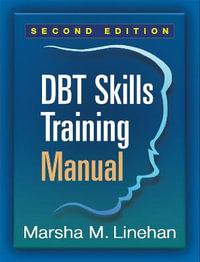"Martha Sweezy and Ellen Ziskind have curated a thought-provoking set of explorations of the Internal Family Systems approach to psychotherapy in this marvelous book that illuminates the sophisticated nature of the relational basis of healing as well as the internal structure of the human mind. Though this approach may be new for some, or quite familiar to others, this book offers a range of topics that can serve to both introduce and deepen ways the clinician can view the mind as comprised of differentiated self-states that need linkage in order to create the integration that can be viewed as the core mechanism of health. These "parts" or aspects of the individual have a wide range of functions that attempt to handle challenges, submerge distress, and provide protection for individuals as they grow from childhood into adulthood. In a collaborative conversation with Richard Schwartz, we came to realize together, along with the IFS community, that their notion of "Self" and the hub of a "Wheel of Awareness," from a quantum view seen as a plane of possibility of consciousness, may in fact represent the same human phenomenon of a receptive state of presence at the heart of healing and living a life of well-being. Learning to strengthen that hub of the Self, to gain the freedom that arises from this plane of possibility, may be the common core beneath effective and long-lasting change in psychotherapy."-Daniel J. Siegel, MD, Mindsight Institute; author, Mind: A Journey to the Heart of Being Human, Pocket Guide to Interpersonal Neurobiology, The Developing Mind, The Mindful Therapist, and Mindsight; clinical professor of psychiatry, UCLA School of Medicine
"This is a wonderful book about IFS. The chapters provide rich case studies and informative examples of IFS in action, as well as covering a wide range of topics such as parenting, trauma, grief, racism, and much, much more. This is a must read book for anyone interested in how to use IFS to its maximum therapeutic benefit."-Kristin Neff, PhD, associate professor, Department of Educational Psychology, The University of Texas at Austin
"This volume is clear evidence that IFS has matured over the past 20 years into a powerful model of therapy capable of resolving intractable clinical problems. Therapists new to IFS will be intrigued by how IFS can make confusing crosscurrents in therapy both transparent and workable. Seasoned IFS clinicians will appreciate the blend of clinical rationale and dialogue used to illustrate creative new applications of the model. Overall, readers are sure to enjoy the intuitive simplicity and the technical sophistication of IFS in the hands of these talented clinicians and authors."-Christopher Germer, PhD, author, The Mindful Path to Self-Compassion; co-editor, Mindfulness and Psychotherapy; faculty, Harvard Medical School
"This book is chock-full of clinical wisdom informed by Internal Family Systems theory. Each chapter focuses on a different clinical area-working with grief, trauma, perpetrators, the intergenerational impact of legacy burdens, among others. Each author gives ample clinical examples, so readers feel as if they are sitting in the therapy room. Recommend for the beginner and experienced clinician alike."-Mona Fishbane, PhD, director, Couple Therapy Training Program, Chicago Center for Family Health; author, Loving with the Brain in Mind: Neurobiology & Couple Therapy
























